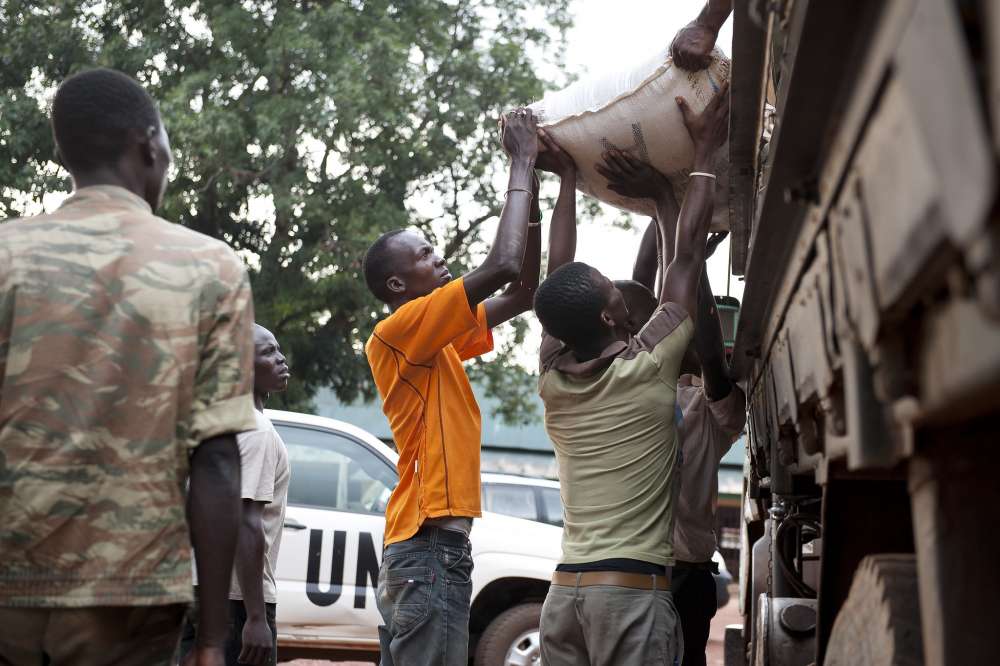The Nobel Laureate’s Peace is a Fragile One

The 2019 Nobel Peace Prize, awarded to Ethiopian Prime Minister Abiy Ahmed Ali, is meant to honor him “for his efforts to achieve peace and international cooperation, and in particular for his decisive initiative to resolve the border conflict with neighboring Eritrea.” According to the Nobel Commission, Abiy Ahmed offers hope for a better future to the East-African country’s citizens. Many people share this hope, including German President Frank-Walter Steinmeier, who visited Ethiopia last January. Whether it will be fulfilled remains an open question – but Germany could help make it possible.
In a surprise turn of events, Abiy Ahmed was appointed head of the Ethiopian government in April of last year, following decades of dictatorial rule at the hands of the coalition party Ethiopian People’s Revolutionary Democratic Front (EPRD). But instead of serving as a loyal party official, he turned out to be a radical reformer. In a very short period of time, Abiy Ahmed, who is 43 years old, broke almost all the taboos of the old regime. He ended the 20-year border war with Ethiopia’s arch-enemy Eritrea, freed thousands of political prisoners, replaced the leaders of the country’s secret service and military, and appointed a new, gender-equal cabinet. He even announced the first free elections in Ethiopia’s history for May 2020.
Despite these efforts, Ethiopia’s democratic transformation remains fragile and a positive outcome is not certain. Paradoxically, greater openness of the regime has so far led to more violence in the country.
Violence and Expulsions Despite a Mood of Optimism
Ethiopia, a strongly federalist country, is home to more than 80 ethnic groups. The borders of the provinces mostly run along ethnic lines. Many ethno-nationalists have been abusing the new freedoms to incite hatred against other ethnic minorities. Particularly in controversial border areas, this hatred has erupted into organized violence. The consequences are alarming: around three million Ethiopians have been forcibly expelled from their homes in 2018 alone, according to the Geneva-based Internal Displacement Monitoring Centre.
Last June, a failed coup and an attack in which the chief of staff of the Ethiopian Army, General Seare Mekonnen, and others were killed followed the same pattern. The alleged leader of the coup attempt, General Asaminew Tsige, is a former political prisoner who owes his release to Abiy Ahmed. Tsige had repeatedly called on the Amhara people to arm themselves against the rest of the country. The rise of such radical ethno-nationalism constitutes a crucial test for the republic, which has a population of more than 100 million.
Are the elections announced for May 2020 feasible under these circumstances? If thoroughly prepared and fairly conducted, they could mark the start of a more democratic future for Ethiopia. But decades of governmental repression also mean that hasty elections could end in hatred and violence, and may only serve to deepen the existing rifts in Ethiopian society. Election campaigns are usually not moments of reconciliation.
A New Civil War Is not Impossible
At the moment, the indicators for the upcoming election are not looking too good. One essential prerequisite for free elections are correct electoral registers, which in turn require a census. However, this measure has already been postponed several times. There is also a stall in the registration of political parties. After many show elections, the results of which were always secretly determined by the state party, the Ethiopian electoral and security authorities lack the staff, equipment and experience required to organize a genuine democratic election. This increases the risk that violent clashes will flare up in the run-up to the elections, which would not be an uncommon sight in Ethiopia. If opposition groups feel that the vote only serves to bolster the prime minister’s appearance of legitimacy, they may use violence to discredit the elections. The potential for subsequent escalation is high — and while a new civil war may not be the most likely outcome, it is within the realm of possibility.
In light of the situation, Abiy Ahmed is maneuvering carefully. On the one hand, he has appointed Birtukan Mideksa, a leading opposition lawyer, as chairwoman of the Ethiopian National Electoral Authority. However, the speed of political change has been slower than he had hoped and he is said to be resistant to others’ advice. Abiy may be tempted to postpone the elections — along with the entire reform process — indefinitely, and to return to the old patterns of autocratic rule. Not only do the interests of the majority of the Ethiopian economic elite align with a closed-off system – the hefty influence of China and the Gulf states, who are supporting Abiy’s government with billions of dollars in financial aid, also contributes to this danger.
Germany Could Do More
It is in Germany’s best interest that Ethiopia continues on the course toward reform and peace for which Abiy Ahmed has now been awarded, and not to drift into violence or a new form of authoritarianism. As a neighboring country of conflict hotspots like Somalia, South Sudan or Kenya, Ethiopia plays a central role in maintaining stability in the Horn of Africa. In addition, Ethiopia’s success can serve as a symbol for the entire continent: in an era marked by the rise of authoritarianism, large African nations are on their way to a free and democratic future. This is one of the reasons why Germany has for years been one of Ethiopia’s most important donors and maintains high-level diplomatic relations with the country.
The German government is supporting the upcoming elections in Ethiopia by providing financial and technical resources. For example, Germany supports a 40-million-dollar project of the United Nations Development Programme (UNDP), which is intended to help the Ethiopian electoral authority create a credible election process. In addition, Birtukan Mideksa recently visited Germany to exchange views with various experts on the organization of elections.
However, the support of the German government has so far been largely unimaginative. It is a mystery why Berlin would invite the new head of the Ethiopian electoral authority to Germany — a country where elections run smoothly — rather than promoting cooperation with a country like Tunisia, which is also in transition and where there are more points of comparison. It is high time that the German government freed itself from its German self-centeredness and developed more innovative approaches and instruments, which could then be applied in other cases.
Similarly, the German government appears to be at a complete loss of ideas when a partner state threatens to abandon its course of democratic reform and risks falling back into autocratic conditions. Hoping for the positive effects of the Nobel Peace Prize is one possibility; whether the award will give the elites in countries like Ethiopia the patience and courage that are necessary for significant change is, however, doubtful.
…
A German version of this commentary was originally published by ZEIT ONLINE on October 11, 2019.







